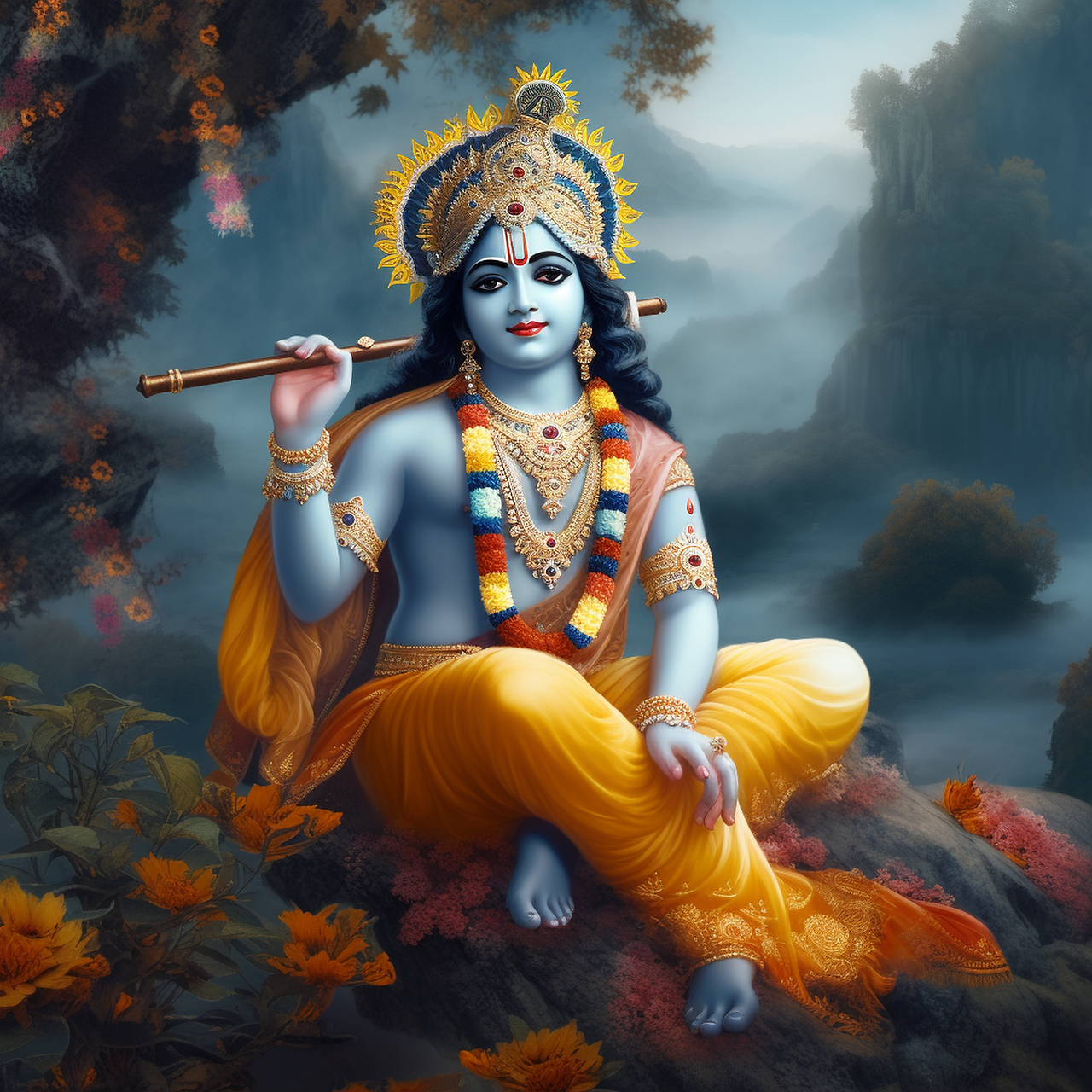Ep. 14/ The Power of Choosing for Yourself
From Sri Krishna to Kant to this Couch Goblin
Hey there, cuties and beauties of the internet,
A few days ago, Cincinnati was having another one of its out-of-nowhere downpours because, apparently, weather apps are just suggestions here. I was sitting on my couch, nibbling on whatever snack I could get my grubby little hands on and staring out my window (translation: I think I’m the main character of a dramatic indie movie whenever it rains) while contemplating why my favorite Bhagwat Gita shloka has always resonated so much with me. And since yesterday was Janmashtami, this feels like as good a time as any to share it with you. After all, nothing screams “divine wisdom” like the sleep-deprived goblin that I am, in sweatpants, marinating in Netflix’s passive-aggressive, “Are you still watching?”
So, in the last chapter, the 18th, Moksha–Sannyāsa Yoga (The Yoga of Liberation and Renunciation), the 63rd shloka reads:
इति ते ज्ञानमाख्यातं गुह्याद्गुह्यतरं मया |
विमृश्यैतदशेषेण यथेच्छसि तथा कुरु ||
iti te jñānam ākhyātam guhyād guhyataraṁ mayā |
vimṛśyaitad aśeṣeṇa yathecchasi tathā kuru ||
Which loosely translates to:
Now I have explained to you knowledge that is more of a secret than all of the secrets. Ponder over it thoroughly, and then do as you wish.
It’s especially meaningful to me because, as I understand it, Lord Krishna is essentially telling Arjuna that even divine truth does not cancel human freedom: wisdom can be offered, guidance can be given, but the choice to act always remains ours. That, to me, underscores that free will and responsibility sit at the heart of the Gita’s message. And be honest, doesn’t that make every single one of Gita’s teachings even more powerful?
What fascinates me further is how this idea echoes across time and traditions. Epictetus, in his Discourses, said that while reason and virtue point the way, one must freely choose to live by them. Centuries later, Kant argued in his Groundwork of the Metaphysics of Morals that morality only has meaning when the will is autonomous. Even existentialists like Kierkegaard and Sartre bolstered this belief, insisting that each person must make a truly authentic choice in the face of uncertainty, even when provided with ultimate truths.
Psychology backs this up, too. Ng’s meta-analysis in Perspectives on Psychological Science confirmed that autonomy-supportive environments foster deeper, lasting change. In therapy, Miller & Rollnick’s book, Motivational Interviewing: Preparing People for Change, demonstrated that people actually do better when you stop barking orders and instead respect their freedom to choose.
And neuroscience adds nuance to this as Benjamin Libet’s classic 1983 study, Brain, showed that neural activity may begin before conscious intention. However, we still get the final veto, what’s been nicknamed “free won’t.”
I guess what I’m really trying to say is: Western philosophy, psychology, and modern science all end up circling back to what Sri Krishna said: the path can be shown, but the choice to tread on it is forever yours. That choice is sacred, whether it’s choosing virtue, choosing your dharma, or just choosing cake for dinner. Freedom to choose is both a burden and a gift.
Which is why, whenever my friends ask me for any advice on practically anything, I usually say: “Here’s what I’d do, but you should do what feels right to you.” And then, of course, I ignore my own wisdom and do the exact opposite, because it seems like my dharma is just rewatching the same show for the fifth time while pretending it’s character research.
Until next time.
Xoxo
